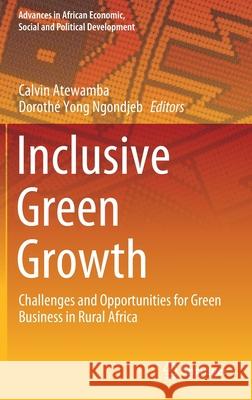Inclusive Green Growth: Challenges and Opportunities for Green Business in Rural Africa » książka
topmenu
Inclusive Green Growth: Challenges and Opportunities for Green Business in Rural Africa
ISBN-13: 9783030441791 / Angielski / Twarda / 2020 / 326 str.
Inclusive Green Growth: Challenges and Opportunities for Green Business in Rural Africa
ISBN-13: 9783030441791 / Angielski / Twarda / 2020 / 326 str.
cena 402,53
(netto: 383,36 VAT: 5%)
Najniższa cena z 30 dni: 385,52
(netto: 383,36 VAT: 5%)
Najniższa cena z 30 dni: 385,52
Termin realizacji zamówienia:
ok. 22 dni roboczych
Bez gwarancji dostawy przed świętami
ok. 22 dni roboczych
Bez gwarancji dostawy przed świętami
Darmowa dostawa!
Kategorie:
Kategorie BISAC:
Wydawca:
Springer
Seria wydawnicza:
Język:
Angielski
ISBN-13:
9783030441791
Rok wydania:
2020
Wydanie:
2020
Numer serii:
000469941
Ilość stron:
326
Waga:
0.65 kg
Wymiary:
23.39 x 15.6 x 2.06
Oprawa:
Twarda
Wolumenów:
01
Dodatkowe informacje:
Wydanie ilustrowane











